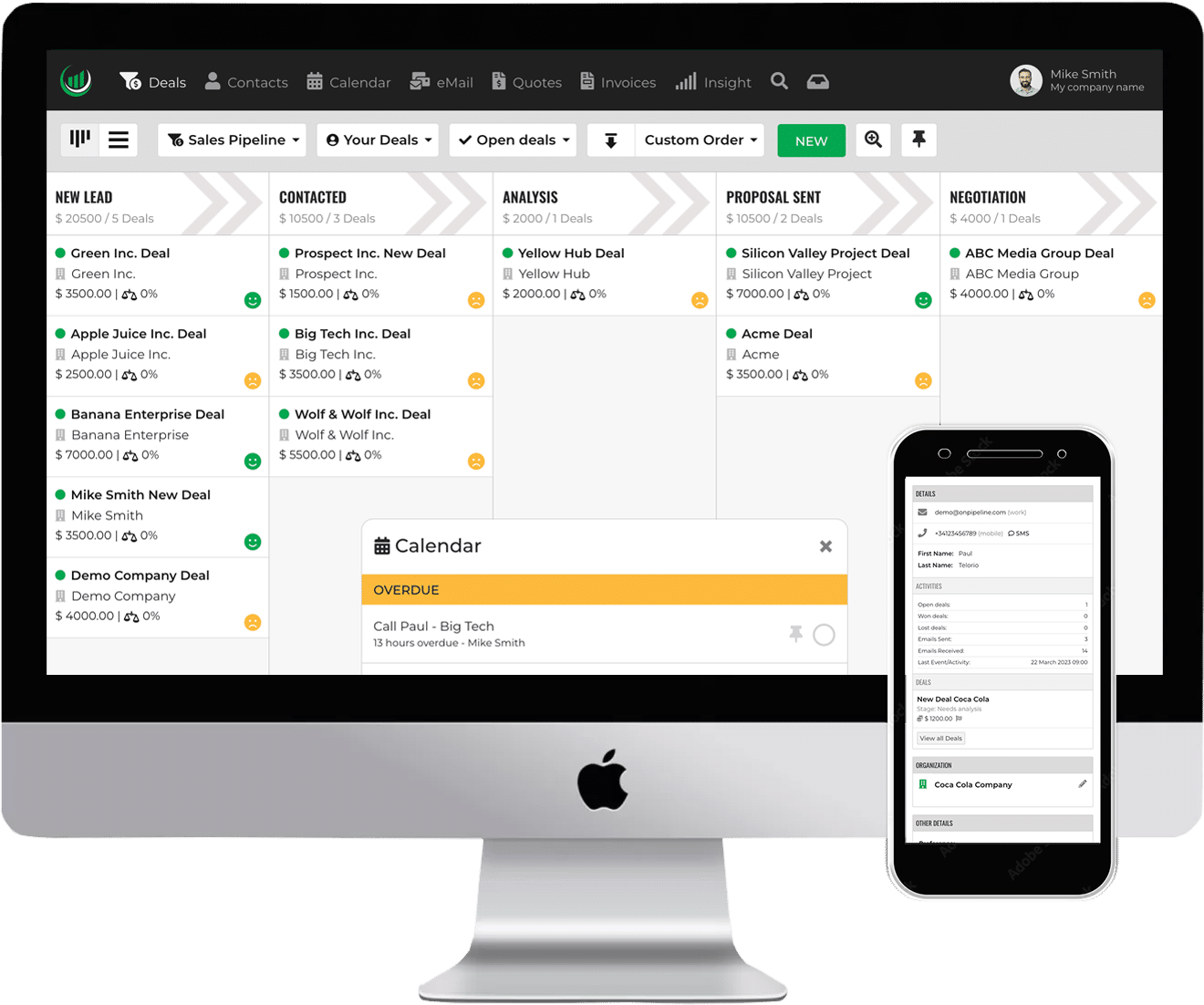Privacy regulations have strengthened in response to concerns such as data breaches, identity theft, and misuse of personal information. The GDPR, implemented in 2018, establishes stringent global data protection standards applicable to any organization processing data of EU residents, regardless of where the organization is based.
Following GDPR, other regions and countries have introduced their own privacy laws with varying degrees of stringency.
For instance, California’s Consumer Privacy Act (CCPA) provides California residents with enhanced privacy rights, including the right to know what personal data is being collected and shared and the ability to opt-out of its sale.
Brazil’s Lei Geral de Proteção de Dados (LGPD) and Canada’s Personal Information Protection and Electronic Documents Act (PIPEDA) are other examples of comprehensive data protection laws that regulate how personal information is handled within their jurisdictions.
Challenges and Opportunities
Meeting CRM privacy compliance involves navigating complex legal frameworks and adapting to changing regulations. However, it also offers businesses opportunities to build trust with customers. Prioritizing data protection and transparency allows organizations to stand out as ethical custodians of customer information.
Implementing strong CRM privacy practices not only reduces legal risks but also promotes a culture of respecting privacy rights, which strengthens customer relationships and enhances brand reputation.
CRM in the Context of Data Protection
CRM systems must ensure transparent data collection practices, secure storage of sensitive information, and adherence to individuals’ rights over their data.
Organizations utilizing CRMs must prioritize data minimization, ensuring they collect only necessary information, and implement robust consent management processes to comply with regulatory requirements.
Additionally, CRMs can show accountability and transparency in handling data, building trust with customers and avoiding penalties for non-compliance. By integrating ethical data practices into CRM strategies, businesses not only ensure compliance with global data protection laws but also improve customer satisfaction and loyalty in a privacy-focused market.
CRM Privacy Compliance
For businesses utilizing CRM systems, compliance with these regulations involves several key components:
Data Minimization and Purpose Limitation: Collecting only the necessary amount of personal data for specified, explicit, and legitimate purposes.
Consent Management: Obtaining clear and affirmative consent from individuals before processing their personal data, and allowing them to withdraw consent at any time.
Data Subject Rights: Upholding individuals’ rights, such as access to their data, rectification of inaccuracies, erasure (where applicable), and portability.
Data Security Measures: Implementing technical and organizational measures to protect personal data from unauthorized access, breaches, and loss.
Privacy by Design and Default: Integrating privacy considerations into the design of CRM systems and adopting default privacy settings that minimize data exposure.
International Data Transfers: Ensuring lawful mechanisms (such as Standard Contractual Clauses or Binding Corporate Rules) are in place for transferring personal data across borders.
GDPR
In a nutshell, GDPR stands for the General Data Protection Regulation. It is a comprehensive data protection law enacted by the European Union (EU) to strengthen and unify data protection for individuals within the EU. GDPR aims to give control to individuals over their personal data and harmonize data privacy laws across Europe.
Key elements include requirements for organizations to obtain explicit consent for data processing, provide transparent privacy policies, implement measures to protect personal data, and uphold individuals’ rights to access, rectify, and erase their data. GDPR applies not only to businesses based in the EU but also to those outside the EU that offer goods or services to EU residents or monitor their behavior.
CCPA (California)
CCPA stands for the California Consumer Privacy Act. It is a state-level data privacy law enacted in California, USA, designed to enhance privacy rights and consumer protection for residents of California.
CCPA grants consumers various rights over their personal information, including the right to know what personal data is collected, sold, or disclosed about them by businesses, the right to access their data, the right to request deletion of their data, and the right to opt-out of the sale of their data.
Key aspects of CCPA include requirements for businesses to disclose their data collection and sharing practices, offer opt-out mechanisms for consumers who do not want their data sold, and refrain from discriminating against consumers who exercise their privacy rights.
CCPA applies to businesses that meet certain thresholds in terms of revenue, data processing, or interaction with California residents, regardless of where the business is located.
PIPEDA (Canada)
The Personal Information Protection and Electronic Documents Act (PIPEDA), is Canada’s federal privacy law governing how private-sector organizations handle personal information in commercial activities.
It requires organizations to obtain consent for collecting, using, and disclosing personal data, ensure transparency in privacy practices, protect information with appropriate safeguards, and provide individuals with access to their own data.
PIPEDA applies nationwide to most private-sector entities, aiming to balance privacy rights with legitimate business needs.
LGPD (Brazil)
The “Lei Geral de Proteção de Dados Pessoais”, is Brazil’s comprehensive data protection law. Similar to GDPR and CCPA, it mandates organizations to obtain consent for data processing, ensure transparency in data practices, and provide individuals with rights to access, correct, and delete their personal information. LGPD aims to protect personal data and enhance privacy rights for individuals in Brazil.
Common Principles in Laws
Several prominent data protection laws around the world, including the GDPR, CCPA, PIPEDA, and LGPD, share fundamental principles aimed at safeguarding individuals’ personal information.
These laws emphasize the importance of obtaining consent before collecting, using, or disclosing personal data, ensuring transparency in data processing practices, and granting individuals rights to access, correct, and delete their data.
Additionally, they require organizations to implement robust data security measures to protect against unauthorized access and breaches. Accountability is another shared principle, requiring organizations to demonstrate compliance through clear policies and practices.
Despite their geographic differences, these laws collectively aim to enhance privacy rights and promote responsible handling of personal information in an increasingly interconnected digital landscape.
Differences
The GDPR (General Data Protection Regulation), applicable across the European Union, emphasizes stringent requirements for data protection globally. It mandates explicit consent for data processing, stringent data security measures, and grants extensive rights to individuals, such as the right to erasure and data portability.
In contrast, the CCPA (California Consumer Privacy Act) focuses on protecting California residents’ personal information. It grants consumers rights to know what data is collected, sold, or shared, the right to opt-out of data sales, and prohibits discrimination against those who exercise their rights.
PIPEDA (Personal Information Protection and Electronic Documents Act) applies to Canada, requiring organizations to obtain consent for data collection, use, and disclosure, and offers individuals rights to access and correct their information.
Similarly, Brazil’s LGPD (Lei Geral de Proteção de Dados Pessoais) mandates explicit consent for data processing, provides rights to access and correct data, and imposes obligations for organizations to adopt measures to protect personal information.
These laws reflect regional nuances and varying approaches to data privacy, tailored to their respective jurisdictions while aiming to enhance consumer rights and data security globally.
Takeaway
As technology advances and global connectivity grows, CRM privacy regulations are expected to continue evolving. Businesses need to keep up with regulatory changes and adapt their practices to remain compliant. Investing in robust data governance strategies and using technologies like encryption and anonymization will be essential to meet both regulatory requirements and consumer expectations.
In summary, CRM privacy regulations are crucial for modern businesses. By following global standards and focusing on ethical data handling, organizations can comply with data protection laws while earning trust and loyalty from their customers.


